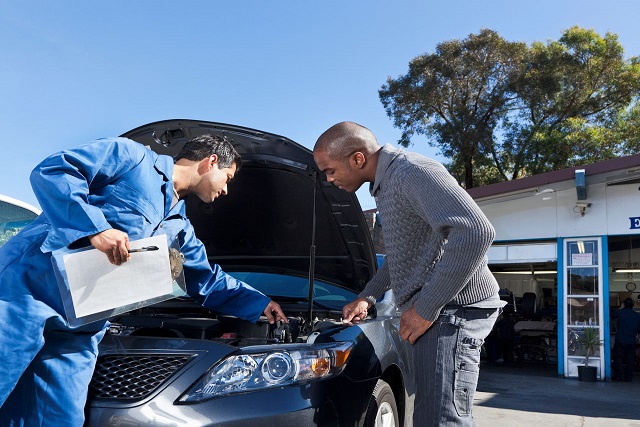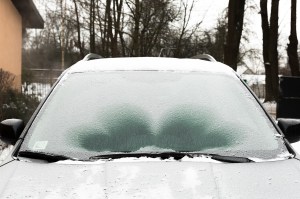If you’ve ever bought or sold a used car, you’re likely familiar with vehicle history reports. These detailed reports provide crash data, maintenance records and ownership history, assuring buyers that they are getting what they paid for. Unfortunately, the process of obtaining these reports is often corrupted by criminals in the form of vehicle history report scams.
Such scams are often perpetrated by sellers trying to offload a damaged, stolen, salvaged or malfunctioning car. In other cases, scammers are trying to obtain personal information. Either way, it’s critical to use a reputable vehicle history report provider. Otherwise, you will be leaving yourself vulnerable to criminals.
Types of Vehicle History Report Scams
Incomplete Reports
Sellers may try to pass off an outdated or incomplete vehicle history report that does not include all the relevant information. If a car is involved in a crash but no insurance claim or police report is made, it likely will not show up on a vehicle history report. In such instances, the owner may not disclose this information to potential buyers in fear of losing the sale.
“I try to remind consumers that the information is only as good as how and when it was entered,” said AAA Northeast Car Doctor John Paul.
Speaking of when, another trick scammers often use is providing an outdated report that was completed prior to any damage. In whatever manner it’s done, intentionally withholding information is a scam.
Fake Reports
Scammers will often create counterfeit vehicle history reports containing fabricated or altered information in an attempt to hide negative records. These may include digitally altered documents and/or fake vehicle identification numbers used to deceive buyers. Fake reports are most often used by private sellers.
Phishing Scams
Scammers often send emails or text messages to potential buyers leading them to fraudulent websites. Once there, the recipients are asked to provide personal and/or financial information, which can then be used for identity and monetary theft.
One type of phishing scam specifically targets people selling their cars online. The criminals contact the sellers as if they are interested in purchasing the vehicle, but ask them to get a vehicle history report from a website link that they provide first. Once the seller orders the report, they are never contacted again, and the scammer has what they wanted all along – valuable personal information.

How to Avoid Vehicle History Report Scams
Use Reputable Sources
Now is not the time to go comparison shopping. Your safest bet in securing an accurate vehicle history report is using a well-known, reputable provider. Start by heading to the National Motor Vehicle Title Information System’s website, vehiclehistory.gov. Here, you can get a vehicle history report and find a list of approved report providers.
Verify the Website’s Legitimacy
Scammers will often try to deceive consumers by creating websites that appear to be those of trusted sources but aren’t. To spot these fake sites, you’ll need to examine the URL.
All secure websites have URLs beginning with “https,” rather than “http,” along with a lock icon on the left side of the address bar. You should also examine the end of the URL to make sure the domain checks out. Legitimate websites have commonly used domains such as “.com,” “.org” and “.gov”.
Scammers have tried using websites with a “.vin” domain, thinking users would believe it was legitimate site for looking up a vehicle identification number, which is often abbreviated as “VIN.” In fact, “.vin” is a domain used for websites related to wine, as “vin” is the French word for wine.
Do not provide any personal information if any of these elements are missing or suspicious.
Get a Pre-Purchase Inspection
Ultimately, your goal is to learn whether the car is in the condition the seller claims it is. The best way to know this is by having a trusted mechanic inspect it. This should always be done prior to purchasing a used car, even one that comes with a legitimate vehicle history report.
Don’t know a good mechanic? We know hundreds. Find a AAA Approved Auto Repair shop close to you.
Be Skeptical of Enticing Offers
Scammers will often try to lure in unsuspecting individuals by offering free or low-cost vehicle history reports. The Car Doctor always says, “if the deal is too good to be true it most likely is.”
Trust Your Gut
Whether buying or selling, if anything strange comes up during the vehicle history report process that seems suspicious, trust your gut and walk away.
Have you heard about or been a victim of a vehicle history report scam? Tell us in the comments below.
In the market to buy a car? Apply now for affordable auto loan rates on new and used cars with AAA Auto Loans.
2 Thoughts on “How to Avoid Vehicle History Report Scams”
Leave A Comment
Comments are subject to moderation and may or may not be published at the editor’s discretion. Only comments that are relevant to the article and add value to the Your AAA community will be considered. Comments may be edited for clarity and length.















The Toyota dealer where I bought my car and have it serviced does not report maintenance to Carfax, so it would not be in my car’s vehicle history report. When buying a used car, don’t view the absence of scheduled maintenance as a negative. It may just not have been recorded. If you think you might sell your car in the future, check your vehicle history regularly and add the maintenance records yourself.
I purchased a car in 2000 from a buy here pay here place. All Vin number search engines were clean on this car. Two years later, We find that the Vin was not created by Ford and was in fact brought to the US illegally from Mexico in 2013. The D.O.T. Confiscated the fake Vin plate and closed the case. Leaving behind the shell of a car that probably belongs to someone in Mexico. Because they could not provide correct title I stopped making payments on this car and as a result, the dealership repoed the car and destroyed my credit. By the way, the Vin is still active on all Vin history sites as a good Vin!